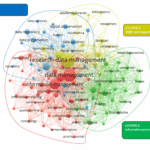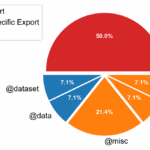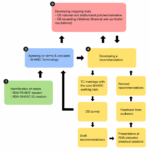
Rising to the challenge: boosting adaptation and resilience for development
One in five people globally are at high risk from climate-related hazards-not just because they’re exposed to floods, heatwaves, cyclones, or droughts, but because poverty or limited access to essential services like clean water, electricity, social protection or financial services leaves them more vulnerable. But here’s the good news: the share of people at high risk from climate-related hazards has halved globally within a decade-from 2010 to 2021, demonstrating global progress and illustrating the benefits of development for resilience.
Europe has a heating strategy—now it needs one for cooling
For decades, European policymakers have defined energy security primarily as maintaining heat during winter. From strategic gas reserves to household subsidies, systemic, top-down responses have shaped the continent’s heating strategy.
But a new threat is emerging. The record-breaking heat wave sweeping across Europe is disrupting daily life, energy systems, and health services, exposing how unprepared Europe remains for summer extremes that are becoming longer, hotter, and more frequent.
New index ranks vulnerabilities of 188 nations to climate shocks
The Columbia Climate School, with support from The Rockefeller Foundation, has unveiled a novel index that integrates countries’ vulnerabilities to cyclones, floods, droughts, earthquakes, conflicts, and other hazards with their ability — due to availability and access to financing—to take prevention, recovery, and rebuilding actions. Illustrating current and future risk exposure scenarios of 188 nations, the Climate Finance (CliF) Vulnerability Index’s interactive dashboard identifies the 65 most at-risk, ‘Red Zone’ nations ― two-thirds of which are in Africa.
The overarching goal of the CliF Vulnerability Index is to promote more comprehensive risk assessment standards, target resources for various bands of vulnerability, and ultimately, inform how to more effectively reach communities facing various types of disaster and financial risks.
Duration of heat waves accelerating faster than global warming
New research finds that not only will climate change make heat waves hotter and longer, but the lengthening of heat waves will accelerate with each additional fraction of a degree of warming. Researchers found that the longest heat waves will see the greatest acceleration, and the frequency of the most extreme heat waves will increase the most. The duration of a heat wave exacerbates the risk to people, animals, agriculture and ecosystems.

Quantifying future local impacts of sea level rise on buildings and infrastructure
This paper presents a refined method for assessing the consequences of sea level rise on coastal communities by quantifying future impacts to buildings and infrastructure at a local level. While community resilience models typically address acute hazards, this work considers sea level rise and tides as a chronic hazard and its temporal impacts. Local sea level rise scenarios and tide predictions are combined to develop a time series of future water levels. The future water levels are mapped to the local topography to obtain the spatial extent of flooding.
Understanding the global subnational migration patterns driven by hydrological intrusion exposure
As climate change intensifies, water-related hazards like floods and droughts are playing a growing role in where people choose—or are forced—to live. While most studies look at migration trends at the national level, this research analyzes nearly 47,000 regions globally to understand how local exposure to hydrological risks drives human movement. Using satellite data, the study offers a detailed view of how hazards, exposure, and vulnerability interact to influence migration.
The findings show that direct exposure to water risks is a more powerful driver of migration than socioeconomic factors. However, not everyone can leave: economically disadvantaged and older populations are more likely to stay in high-risk areas or relocate only nearby. The research also reveals a complex, S-shaped migration pattern—initial resistance to move, followed by increasing departures, and eventually entrapment—shaped by a community’s resilience and ability to adapt.
Natural disasters are increasingly disrupting lives and economies across the globe. While new technologies like artificial intelligence and machine learning hold great promise for improving disaster risk management (DRM), most existing studies focus only on specific tools or applications. Broader frameworks are rare, and there’s a key gap: how to handle the complex data challenges that come with using technology in disaster response.
This study introduces a new framework centered on data governance, tackling three major problems—lack of data, poor data quality, and limited use of data—across both the technical and human sides of risk management. Drawing on real-world examples, the paper shows how emerging technologies can help address these issues while also highlighting new risks that come with relying on advanced tech. The proposed model offers a practical, closed-loop approach for aligning data strategy with evolving disaster needs—moving beyond tech hype toward smarter, more resilient systems.
The future of poverty: Projecting the impact of climate change on global poverty through 2050
This paper presented global and regional projections of the potential poverty impacts of climate change through 2050, using a macro-to-micro simulation approach that links temperature-driven GDP shocks to household-level income and consumption data.
The findings suggest that under a high-emissions, limited-adaptation scenario (SSP5-RCP8.5), climate change could significantly slow progress in poverty reduction—particularly in regions with high baseline poverty, low adaptive capacity, and strong dependence on climate-sensitive sectors. The projections show that climate-induced income losses alone could push an additional 41 million people into extreme poverty by 2050.

The Think Resilience Dialogues – co-hosted by the United Nations Office for Disaster Risk Reduction and the Group of Friends for Disaster Risk Reduction – provide a space for Member States, as well as the United Nations system, invited experts and stakeholder groups, to informally discuss issues central to risk-informed decision-making with a view to mainstreaming a risk-informed approach across various intergovernmental fora.
This Think Resilience Dialogue will unpack the disaster risk reduction and resilience building elements of the Awaza Programme of Action and discuss key areas of work that are of particular significance to LLDCs, to support delegations as they prepare for the Third International Conference on LLDC3.
Nature-based Solutions to Global Challenges Foundation Course
This course is an introduction to Nature-based solutions (NbS) for professionals working in a range of sectors: staff at NGOs from the development and environmental sectors wanting to better understand the evidence from research and practice on how NbS can deliver multiple benefits and for whom, to enable them to hold governments to account; business executives wanting to better understand the risks and also the opportunities of investing in NbS; civil servants, regulators, and investors working to develop policies that can enable economic recovery whilst supporting net-zero and biodiversity goals; and philanthropists wanting to support activities that have positive outcomes for both people and nature.
The workshop will focus on the key CSIS functions, including climate monitoring, climate prediction, and data, as well as the deployment of Climate Services Toolkit (CST). It will also build on the lessons learned and good practices of RCCs emerging from the WMO contribution to ClimSA. The workshop will bring together experts from all RCCs in Africa-Caribbean-Pacific (ACP) regions supported under the ClimSA programme, as well as WMO Subject Matter Experts (SME) who will serve as resource persons.
Disaster risk reduction and resilience building in LLDCs: From commitment to action
This event will bring together government representatives from Landlocked Developing Countries (LLDCs), UN agencies, and partners to explore strategies for implementing the disaster risk reduction and resilience-building priorities outlined in the new Programme of Action for LLDCs (2024–2034). With LLDCs facing heightened vulnerability to climate change and natural hazards, the event will focus on advancing risk-informed development through improved data, financing, technology transfer, resilient infrastructure, and regional cooperation. Discussions will identify concrete steps, good practices, and gaps to support LLDCs in building more resilient societies and achieving sustainable development.














































